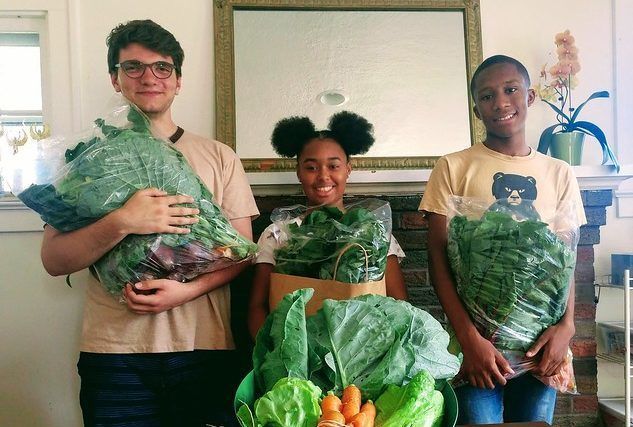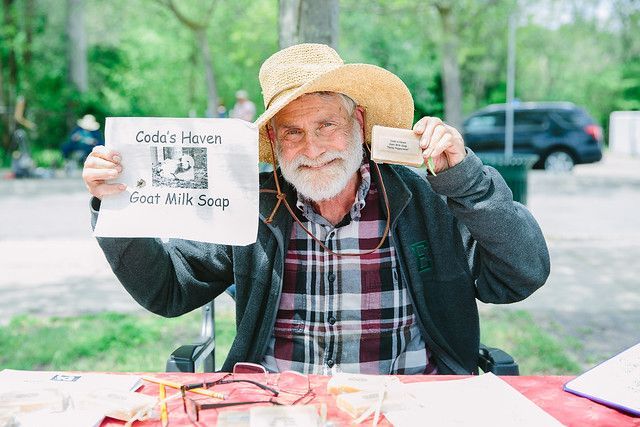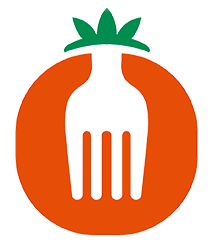Article
This Place Is Magic
Integrating Food Access and Preventive Care at The Farm at Trinity Health Ann Arbor
Loren Sanders, the Food Program Coordinator at The Farm at Trinity Health Ann Arbor, knows that the problems of food access and health are systemic, and that dealing with hospital bureaucracy and insurance can make patients feel uncared for. But one of her main goals is “to make at least one patient’s experience better, and to show them that the hospital really does care about each patient.” She emphasized that the hospital, which was founded by the Sisters of Mercy, genuinely aims to care for the poor, and that anyone can come and receive services, regardless of insurance coverage. Although she hates the cliche, she says that the farm truly is magic – that there is magic both in having this massive green space in the middle of the city, and magic in being able to tell anyone who comes to the farm “yes you can”– whether it’s picking a vegetable, walking around the green spaces, or taking food from the food pantry.
The farm itself is five fenced-in acres, with 1.2 acres in production, including four hoop houses (one of which is the nation’s first accessible hoop house) and a propagation house, but the work of the seven full-time farm staff extends far beyond that acreage. They also maintain the rest of the green space of the Trinity Health campus – an impressive 340 acres, making it one of the largest green spaces in Washtenaw County. They have been maintaining the trails, installing improved signage, and collaborating with the
National Fish and Wildlife Foundation and the
Huron River Watershed Council to enhance the green space for the benefit of all community members.
The farm has a flower garden, which was started around 2017 by a hospital staff member who wanted to grow flowers for patient bouquets. Since then, the flower garden has expanded, and the staff can bring 50 bouquets a week to the nurses' station in the hospital, which the nurses then distribute to their patients. Flowers aren’t just pretty – there is evidence that patients with flowers or plants in their room experience better health outcomes, such as lower blood pressure, less pain, and less anxiety.
The majority of what the farm grows on-site goes to their farm stand in the hospital lobby, where hospital staff can shop during their lunch breaks. Anything which goes unsold at the farm stand is then passed on to the Patients and Providers Program, a donation-based program which serves food pantries such as EMU’s
Swoops Food Pantry, the
Hope Clinic Food Program, and the Packard Health
Fresh-a-Sprout FREE Fresh Food Markets.
The
farm share program at the Farm at Trinity Health Ann Arbor is an aggregate CSA program, meaning that while some of the produce is grown on the farm, most of the produce is sourced from other local farms. This expands the range of available produce in the boxes and also means that, rather than focusing on being a production farm, they can use their own space to focus on health education. The Farm at Trinity Health Ann Arbor works with its partner farms during the winter to plan the following season’s crops, providing the smaller farms with a guaranteed buyer and the ability to build up their capacity.
The CSA currently serves 500 members, 400 of whom receive their boxes at no cost. The farm would love to be able to provide more boxes, but they’re currently limited by the practical constraints of their fridge size. The subsidized boxes go to
Meals on Wheels clients (older adults who are homebound and unable to prepare meals for themselves), participants in the
Ypsilanti Family Empowerment Program (which helps to improve the health and wellness of families living in Ypsilanti Housing Commission complexes), and various University of Michigan programs. These organizations pick up the CSA boxes from the farm and deliver them directly to their clients.
In addition to the CSA program, the farm also operates a food pantry, which is open to all and serves about 120 community members a week. They partner with
Food Gatherers to provide the community with access to pantry staples in addition to fresh vegetables, eliminating the need for people to visit both the farm and separate food pantries. The farm uses their internal budget to purchase staples like eggs and milk (which, before federal cuts, they received for free from the USDA), receives rescued food like milk, eggs, bread, fruits, and vegetables from Food Gatherers, and orders non-perishables like dried or canned beans, cereals, rice, nut butters, and sometimes treats like Nutri-Grain Bars. In the hospital pantry, they focus on stocking easy-access things like pop-top soups, easy mac, and microwavable rice. Food Gatherers has had a 15% cut in federal funding, so the farm is currently waiting to see what the future will hold for their ability to continue to provide this level of food access.
The farm currently takes SNAP at the farm stand, and they offer SNAP boxes for $7.50 during Wednesday community distribution days. The Wednesday community distribution times are also times for community – Loren says that many people show up early with their coffees just to hang out, talk to each other, and enjoy the space. This is also when a representative from the SNAP-Ed program Healthy Habits Starts Now comes to the farm and provides recipes, samples, and tastings for community members. The Healthy Habits has been running for 8-12 weeks every summer, but unfortunately, the last day for the program is this August 13th; federal SNAP-Ed funding was eliminated by the recent “Big Beautiful Bill.”
The federal cuts to SNAP and SNAP-Ed funding will impact the operations of the farm (in ways yet to be determined). Still, beginning in January, the farm plans to start accepting “in lieu of services” (ILOS) reimbursements from Medicaid for qualified community members, which should hopefully offset some of the food costs for community members most in need of nutritious food. According to the Michigan Department of Health and Human Services, ILOS are services the state deems to be medically appropriate and cost-effective when provided as substitutes for other Medicaid-covered services. The ILOS program is an example of preventative healthcare at work – the goal is to improve health and reduce the future need for medical services by reducing food insecurity and ensuring enrollees have access to nutritious foods.
Loren is hopeful that the ILOS program will open them up to different types of grants and relationships with integrated research with the hospital. There is the potential for doing medically tailored boxes for conditions like diabetes or boxes tailored for prenatal and postpartum nutrition, and conducting research on the efficacy of the boxes as a form of health intervention. She would also really love for the farm to be able to move towards providing pre-made meals, though this would require them to get additional food licensing.
For now, the farm remains an oasis in the middle of the city, with Trinity Health outpatients receiving physical therapy and tending the raised beds in the accessible hoophouse, CSA members enjoying the rain gardens and picking herbs from the beds near the food pantry, kids coming to the farm to learn about the importance of fruits and vegetables and enjoy the green spaces, and current and retired Trinity Health staff tending their designated community garden. The tightening of federal and state budgets will require innovation to continue providing these benefits to the community. Still, hopefully, The Farm at Trinity Health Ann Arbor will remain a magical place for many years to come.
This post is part of a series by Emma Rose Hardy, a PhD Candidate at the University of Michigan and the Rackham Local Food Systems Intern at Growing Hope. The series aims to highlight the essential role that SNAP and other food assistance programs play in the Washtenaw County local food system.
share this
Related Articles
Related Articles


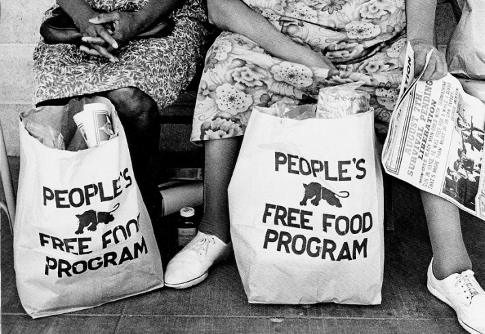
STAY UP TO DATE
GET PATH'S LATEST
Receive bi-weekly updates from the church, and get a heads up on upcoming events.
Contact Us


